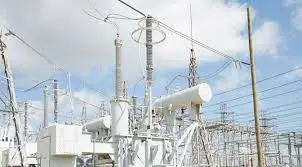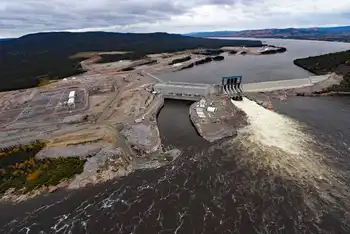Progress Energy delays nuclear plant
By Tampa Tribune
Protective Relay Training - Basic
Our customized live online or in‑person group training can be delivered to your staff at your location.

- Live Online
- 12 hours Instructor-led
- Group Training Available
The plant was originally planned to become operational sometime between 2016 to 2018. The delay of at least 20 months comes because the Nuclear Regulatory Commission recently told Progress Energy it will allow site preparation only after it issues a license to build and operate the plant, a ruling made public for the first time.
As a result, Progress Energy said in a news release, it will seek approval to spread certain costs, mainly for the new plant, over five years, which would provide some short-term customer relief, the company said in a news release.
If approved, the cost deferral would result in a nuclear charge of $6.69 per month per 1,000 kilowatt-hours for residential customers in 2010 instead of $12.63 per 1,000 kWh, as allowed by the current law, the release stated.
These costs are for the planned Levy County nuclear plant with two reactors plus improvements to increase the output at the existing Crystal River nuclear plant from 900 megawatts to 1,080 megawatts, Progress Energy said. The Crystal River plant rate accounts for 30 cents of the requested amount.
The Florida Public Service Commission will conduct hearings on the company's nuclear cost recovery in September and is expected to make a decision in mid-October.
In a separate issue, the PSC in October is expected to make decisions on the company's 2010 base rates, which make up about one-third of a typical residential monthly bill.
It is too early for Progress Energy to determine customers' costs for electricity per kilowatt-hour in 2010 or the average customers' January bill as both include factors that are not determined yet, company officials said.
That bill would include the base rate, fuel, energy conservation programs, government-mandated environmental projects, gross receipts taxes and local government fees and taxes, in addition to the nuclear project costs.
"I expect significant impact from (Obama Administration) energy initiatives, but I do not anticipate those would have an impact on the need for the new nuclear plant," said Jeff Lyash, president and CEO of Progress Energy Florida said in a prepared release.
"The Levy County nuclear project remains one of our company's top priorities, and we are committed to pursuing state-of-the-art new nuclear facilities in Florida, especially given the strong public policy support for nuclear energy at the state level," Jeff Lyash, president and CEO of Progress Energy Florida said in a prepared release.
"Shifting this portion of the work until we have the combined operating license in hand enables us to spread some of the costs over a longer period," he said.
"We believe this is in the best interest of our customers particularly during this continuing economic slowdown."
Progress Energy originally intended to do some site preparation, including pumping water from the site, and sought "limited work authorization" from the NRC.
The company did not specify when the NRC determined it must wait until it issues a license, beyond saying it received notification in April.
The shift in schedule provides time for the economy to recover, which should allow for financing in a more stable market, said Bill Johnson, president, chairman and CEO of Progress Energy in Raleigh, N.C.
It also provides more time for national leaders to develop potentially "transformational" energy policies currently under debate in Washington, Johnson said in a prepared statement.











